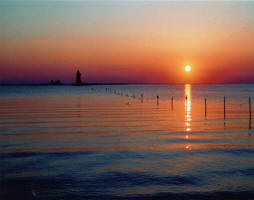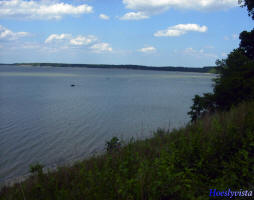 Jordan River Rehabilitation
Jordan River Rehabilitation
The Jordan River once carried an average of 1.3 billion m3 of fresh water to the Dead Sea annually. Today this figure has been reduced to just 20 - 30 million m3 per year due to the diversion of 98% of the River's flow by Israel, Jordan and Syria. Diverting the fresh water flow of the Jordan River tributaries has devastated the Dead Sea and its environs and transformed the culturally and historically important Jordan River into little more than an open channel of agricultural run-off, diverted saline waters and untreated sewage.
The Jordan River Rehabilitation Project is supported by the United States Agency for International Development (USAID), the Goldman Fund, the Global Nature Fund / Ursula Merz Foundation and the Green Environment Fund.
--
Click here for the above project description in HEBREW and ARABIC, or this above description in a PDF flyer version.
Click here for a power point presentation on the project.
Click here for a Hebrew summary of the project's Environmental Flows and Economic Analysis of Policy Options for Water Conservation studies.
| Project number | n/a | ||
|---|---|---|---|
| Subject(s) | HYDRAULICS - HYDROLOGY , MEASUREMENTS AND INSTRUMENTATION , METHTODOLOGY - STATISTICS - DECISION AID , NATURAL MEDIUM , POLICY-WATER POLICY AND WATER MANAGEMENT , PREVENTION AND NUISANCES POLLUTION , RIGHT , RISKS AND CLIMATOLOGY , WATER QUALITY | ||
| Geographical coverage | Jordan, Israel, Palestine, | ||
| Budget (in €) | 0 | ||
| Programme | Friends of the Earth Middle East (FoEME) | ||
| Web site | http://foeme.org/www/?module=projects&record_id=153 | ||
| Objectives | The primary goal of this project is to both identify the means by which water transfers to the Lower Jordan River could take place and help create the political will to make them happen. Mobilizing visionary leaders and good will champions from Jordan, Israel and Palestine to develop a dialogue and achieve concrete steps towards restoring the Jordan River will provide new opportunities for improved livelihoods of over 300,000 residents of the Jordan Valley, Jordanian, Palestinian and Israeli. This will be a significant contribution to develop understanding and a collaborative mechanism to manage common natural resources such as water in the Jordan Valley. |
||
| Results | Primary Project Outputs
--
For more information contact:
|
||
| Period | [01/01/2009 - 31/12/2010] | ||
 you are not logged in
you are not logged in





